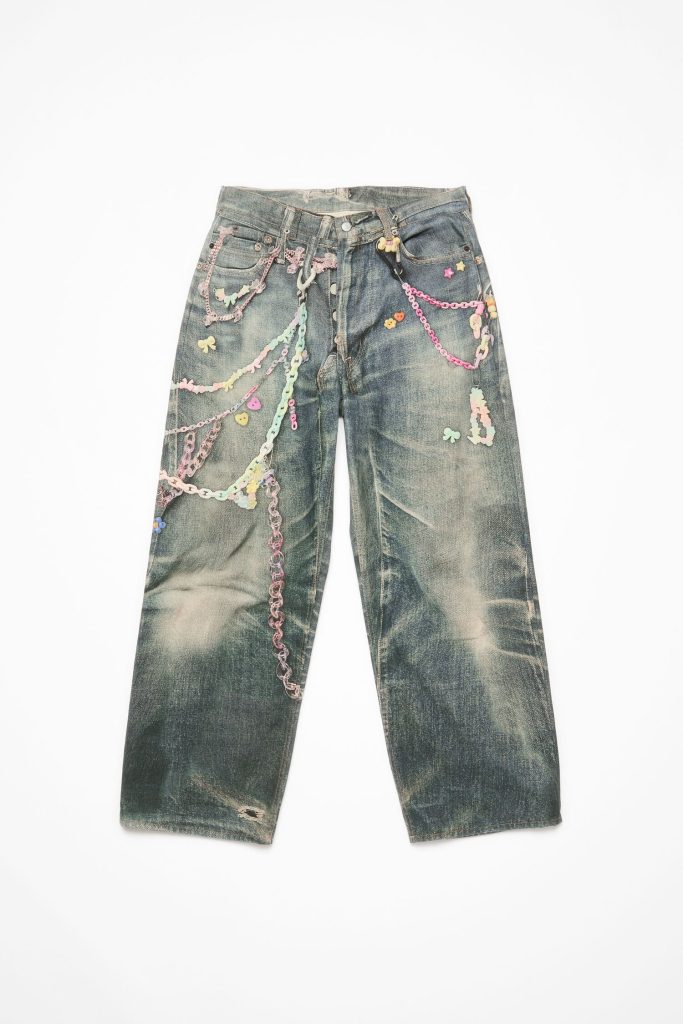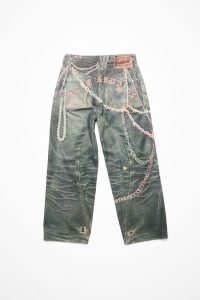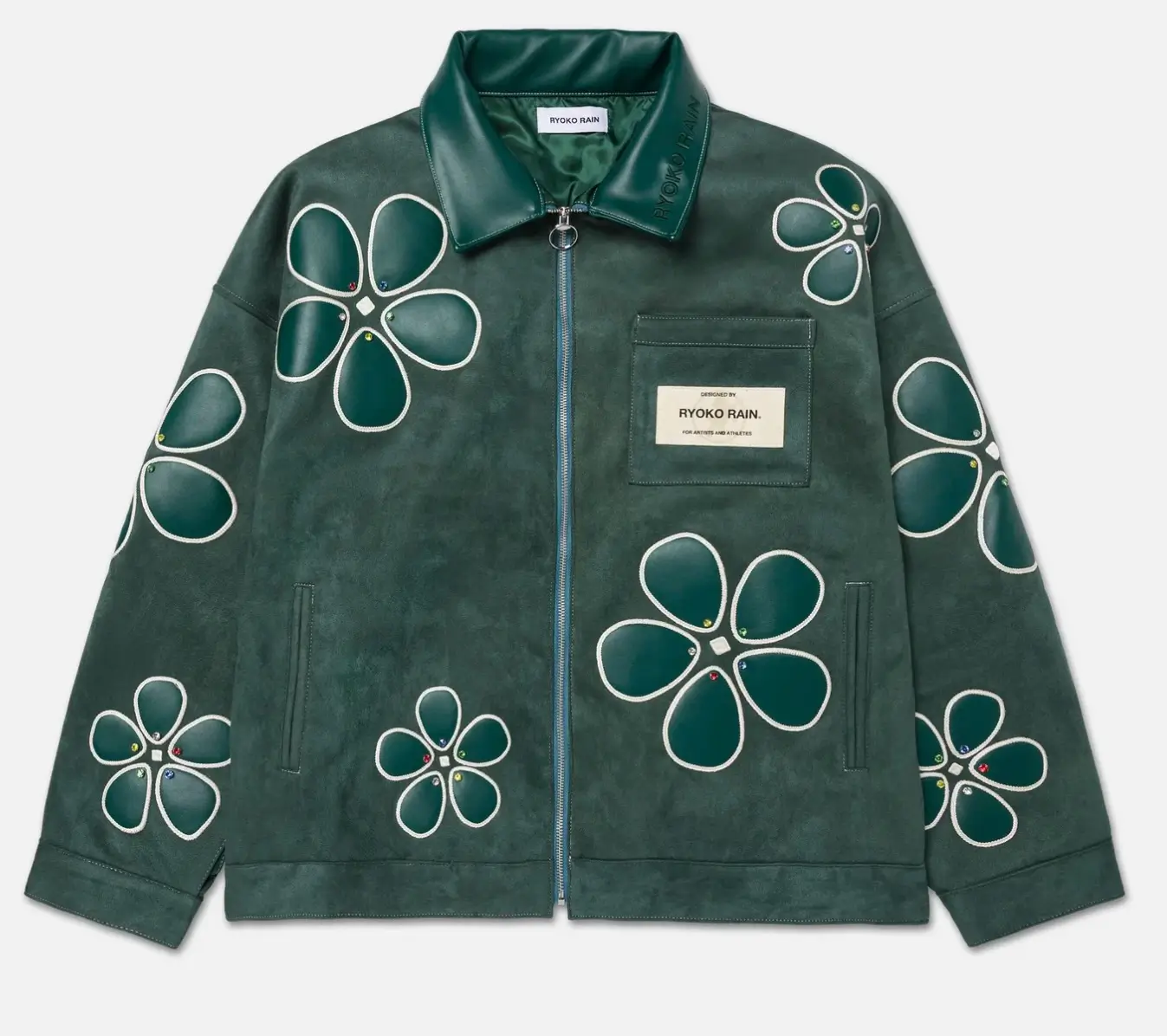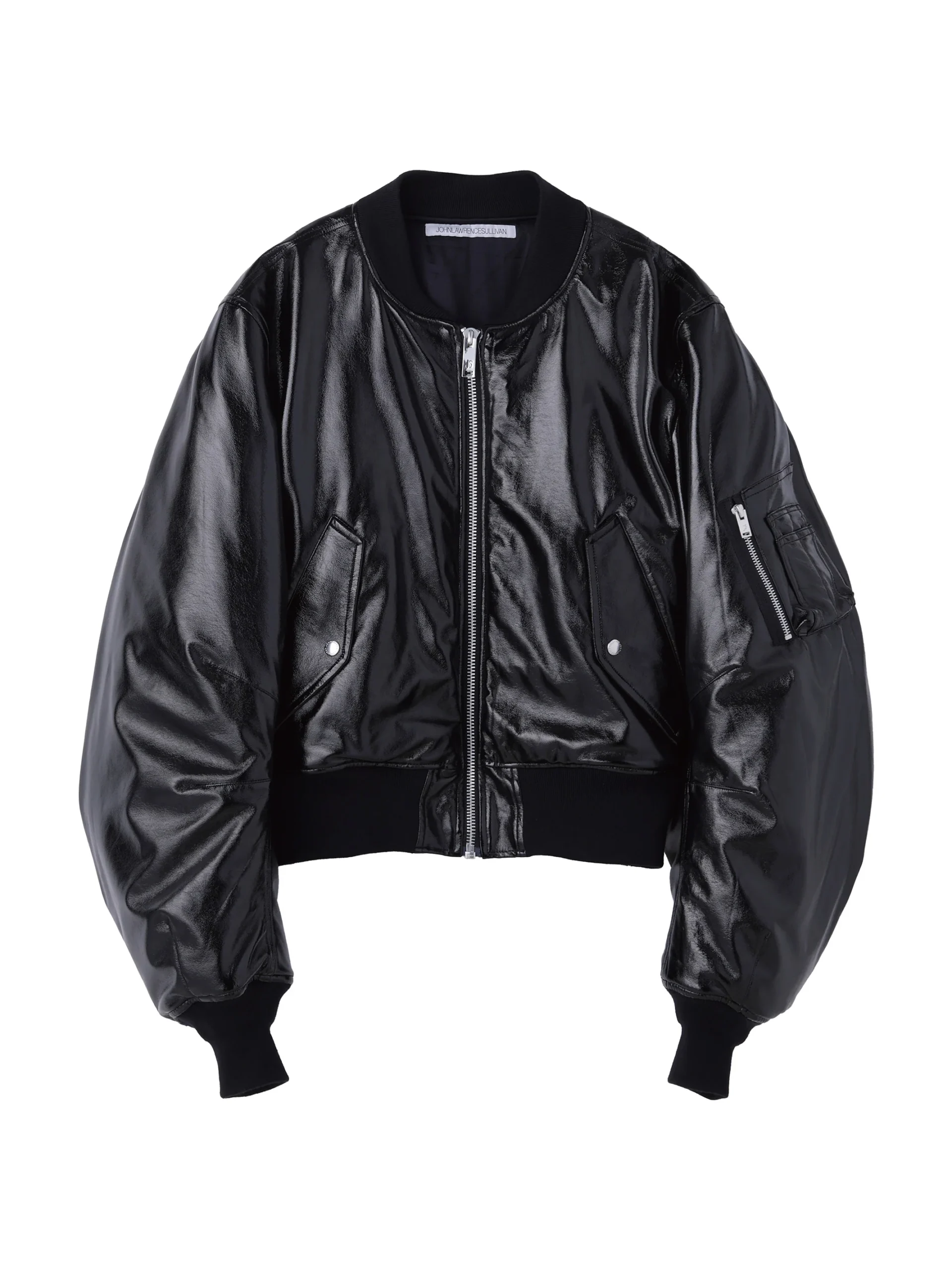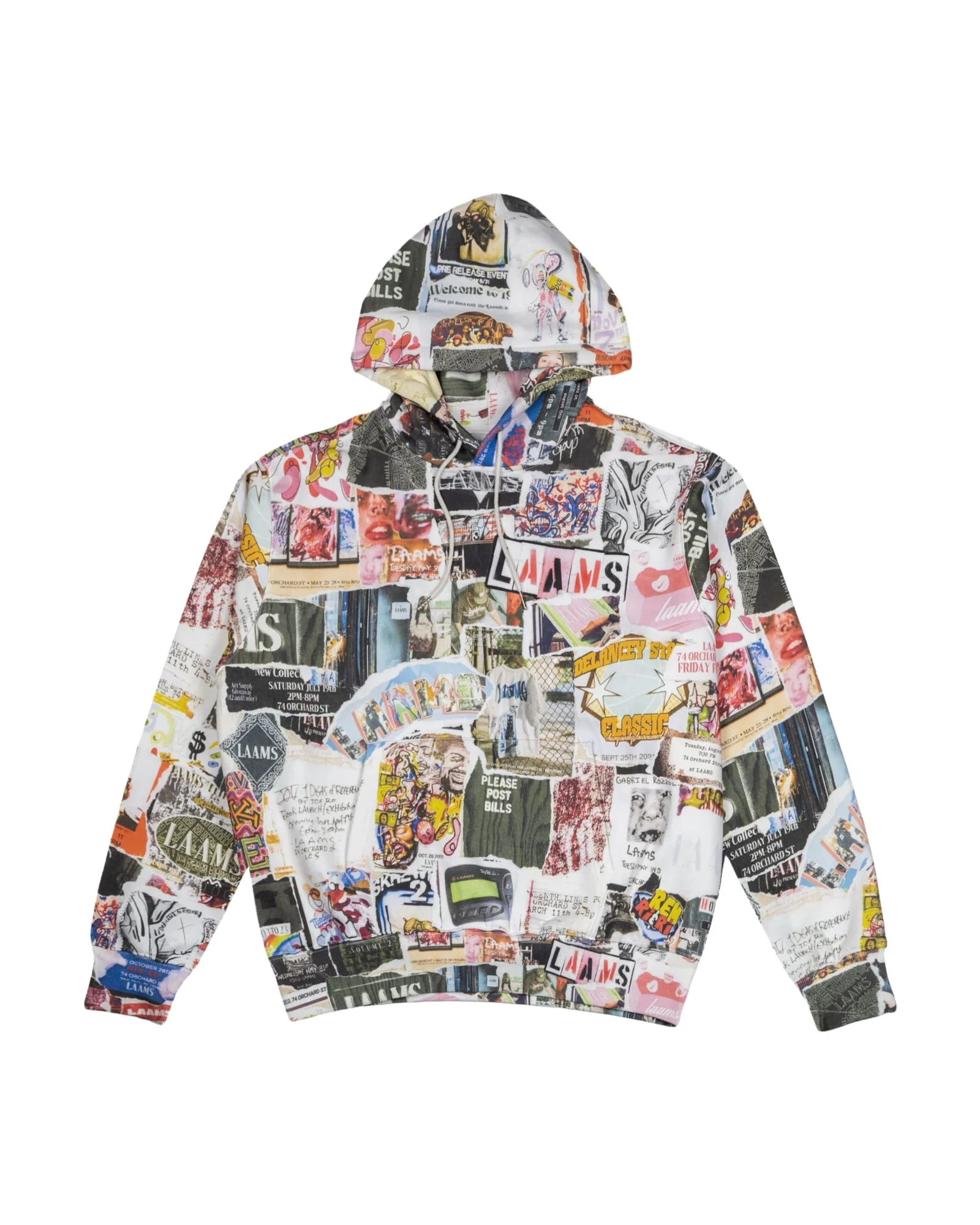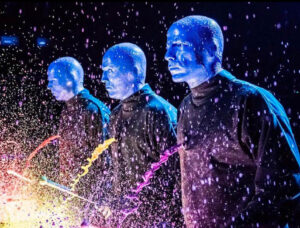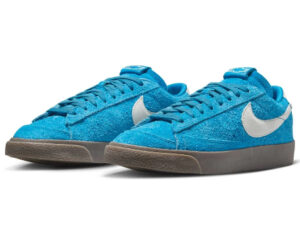Denim, once the humble fabric of laborers, has evolved into a veritable canvas for self-expression, rebellion, and cultural commentary. In the never-ending conversation between fashion and society, few garments embody this dynamic as vividly as a pair of jeans. Acne Studios’ latest offering, the 1981 fit jeans, emerges at the intersection of past nostalgia and future fantasy, a wearable artwork that challenges and redefines what denim can be.
The 1981 fit jeans from Acne Studios are no mere trousers; they are a conceptual playground, reimagining the ordinary into something delightfully surreal. Cut to a loose fit with a mid waist and wide legs, they boast an extended length that pools and drapes with studied nonchalance. While the shape nods to the anti-fit silhouettes of the 80s and 90s — decades when denim was a symbol of subcultural cool — the details speak to an entirely new dimension.
Crafted from durable cotton canvas, these jeans carry a weight that feels both literal and metaphorical. Cotton, a fabric with centuries of utilitarian history, is here elevated into a statement piece, transforming an everyday staple into a collector’s item. The material choice allows the jeans to hold their shape, while the treatment and washes give them a lived-in, rebellious charm.
The star of this design, however, lies in its mesmerizing trompe l’oeil print — a French artistic technique meaning “to deceive the eye.” Acne Studios deploys this illusion to remarkable effect, printing pastel-colored “keychains” and charms directly onto the fabric. At first glance, these chains appear to dangle and sway, a playful distortion that invites a double take. As your eyes move along the intricate paths of pinks, greens, lilacs, and yellows, the jeans feel alive, as if in mid-motion. The visual distortion tricks the observer, blurring the line between actual accessories and printed graphics.
The charms evoke a joyful nostalgia: hearts, clovers, smiley faces, reminiscent of childhood friendship bracelets and novelty keychains bought at amusement parks. These whimsical touches transform the jeans from a utilitarian item into a wearable scrapbook of memory and imagination. The placement of these printed charms feels spontaneous and rebellious, hinting at teenage DIY energy — as if someone spent a summer afternoon customizing their favorite denim piece, only this time with the precision of high fashion.
On the back, the jeans reveal even more surprises. The brand name “Acne Studios” sprawls across the upper back in a gothic-inspired font, another nod to subcultural fashion codes. Here, branding is not just a label but an integral design feature, a bold statement of identity rather than a quiet signature. Additional chains cascade across the back in a tangle of pastel trails, drawing attention to the seat and legs while creating a sense of motion even when still.
The whiskering details — those faded, horizontal lines on the thighs and back of the knees — further enhance the vintage vibe, giving the jeans an almost archival quality. These marks evoke hours of wear, the soft creases that tell stories of movement and life. Combined with distressed elements near the hem and pockets, these subtle abrasions capture the paradox of controlled imperfection that defines so much of Acne Studios’ ethos.
At a cultural level, these jeans sit at the cross-section of fashion’s current obsessions: nostalgia, irony, and personalization. We live in a time when fashion constantly mines the past for inspiration, yet refuses to replicate it faithfully. Instead, designers distort and remix, weaving humor and commentary into garments. The trompe l’oeil technique feels particularly poignant now, speaking to our collective fascination with illusion and image in the digital age. In a world dominated by filters and virtual aesthetics, these jeans become a real-world manifestation of our altered visual culture.
Moreover, the joyful charm motifs capture the spirit of Y2K revival currently sweeping fashion runways and streetwear scenes. The early 2000s obsession with personal accessories — think jangly charm bracelets, phone charms, and sticker-laden flip phones — has returned with full force, fueled by Gen Z’s thirst for playful nostalgia. Acne Studios channels this mood perfectly, but with a distinctly adult sophistication that makes these jeans more than costume.
Acne Studios has always been a label that embraces contradiction: refined yet undone, minimalist yet chaotic, Scandinavian yet globally resonant. With the 1981 fit jeans, this tension is on full display. The silhouette is clean and architectural, while the details are anarchic and effervescent. The result is a piece that feels simultaneously timeless and timely, designed for those who want their clothes to speak as loudly as they do.
For styling, the possibilities are as limitless as the imagination of the wearer. One could lean into the jeans’ coltish graphics with an oversized pastel sweater and clunky platform sneakers, creating a head-to-toe statement of ironic sweetness. Alternatively, they could be paired with a simple white tank top and minimalist mules, letting the jeans become the undeniable focal point. The jeans’ loose fit also invites experimentation with proportion — imagine them worn with a sharply tailored blazer or a cropped puffer jacket, balancing slouch and structure in an editorial-worthy ensemble.
From a more philosophical perspective, these jeans challenge our notions of authenticity and self-expression in clothing. By using trompe l’oeil, Acne Studios questions what is “real” in fashion. Is it the chain you actually attach to your belt loop, or the printed one that looks real from afar? Is authenticity found in handmade customization, or can it be industrially printed and still feel personal? In provoking these questions, the jeans act as a sartorial mirror, reflecting our layered relationships with image, identity, and originality.
Furthermore, the 1981 fit jeans serve as a critique — or perhaps a celebration — of fashion’s constant cycle of referencing and reinterpretation. The “keychain” motif is not new; it’s an almost universal cultural symbol of adolescence and personal adornment. Yet, by elevating it to the level of luxury design, Acne Studios invites us to reconsider the value and meaning of these everyday symbols. It is an act of cultural alchemy: turning something once considered trivial into a wearable treasure.
Environmental considerations also enter the conversation. Denim production is notoriously resource-intensive, and while Acne Studios does not position these jeans explicitly as a sustainable product, the durability of their construction and the timelessness of their design suggest longevity. In an age where consumers are increasingly conscious of their purchases’ environmental impact, investing in a piece designed to be worn, reworn, and loved across seasons resonates deeply.
The emotional response to these jeans cannot be overstated. They provoke delight, curiosity, and perhaps even nostalgia-induced longing. Like all great fashion, they tell a story — not just of the brand, but of the wearer who chooses to incorporate them into their life. They carry within them the potential for countless future stories: festivals danced through, cities explored, friendships formed, and nights remembered.
On a technical level, the execution of these jeans showcases Acne Studios’ mastery of textile innovation and graphic application. The print placement is meticulously considered to maintain visual balance while suggesting randomness. The denim wash, fading, and distressing are achieved through a series of complex treatments, each step executed by skilled artisans. The result is a piece that feels spontaneous yet meticulously crafted, echoing the duality at the heart of the brand’s identity.
In the broader context of denim’s history, the 1981 fit jeans join a lineage of iconoclastic moments. From Marlon Brando’s rebellious biker jeans in “The Wild One” to the artfully torn skinnies of the 2000s, denim has continually evolved to reflect shifting cultural undercurrents. Acne Studios’ trompe l’oeil jeans represent the next chapter — a vision of denim as digital-age storytelling medium, an object that blurs reality and fantasy while honoring craftsmanship.
As Acne Studios continues to shape its narrative within contemporary fashion, pieces like the 1981 fit jeans highlight the brand’s commitment to pushing creative boundaries. They refuse to settle for static ideas of what jeans can be, instead treating them as canvases for experimentation, provocation, and joy. In doing so, Acne Studios invites us all to reimagine our relationship with the most democratic garment in fashion history.
The 1981 fit jeans do not just dress the body; they dress the imagination. They ask us to lean into our sense of play, to embrace the artifice and the authenticity in equal measure. In a world increasingly driven by algorithms and hyper-curated perfection, they stand as a celebration of imperfection, humor, and human touch.
For those willing to take the sartorial leap, these jeans offer more than style points; they offer a manifesto. A declaration that fashion is not merely about utility or status, but about storytelling — the kind that begins in the atelier but is completed in the streets, at concerts, on trains, in spontaneous moments of life. In every trompe l’oeil chain and pastel charm, there is an invitation: to move, to conjure, to express, and above all, to live.
No comments yet.

